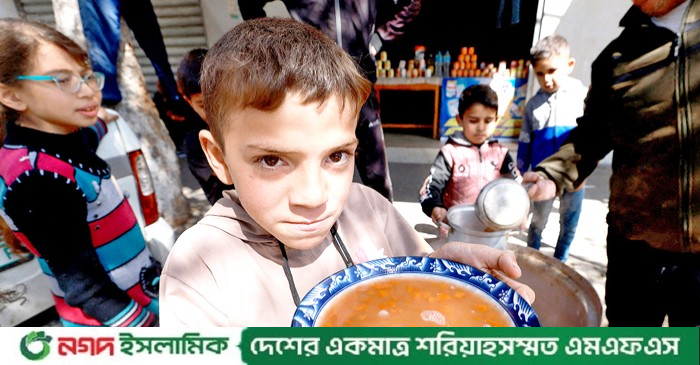Saif
Senior Member
- Messages
- 17,408
- Likes
- 8,373
- Nation

- Residence

- Axis Group


Israel says it will ‘flood’ Gaza with aid as pressure mounts to do more
Breaking News, International News & Multimedia
thedailynewnation.com
Israel says it will ‘flood’ Gaza with aid as pressure mounts to do more
15 Mar 2024, 12:00 am

Reuters :
Israel will try to “flood” the Gaza Strip with humanitarian aid from a variety of entry points, the main military spokesman said on Wednesday as international pressure mounted to address the growing problem of hunger in the besieged enclave.
After more than five months of war in Gaza, aid agencies have warned that the area’s 2.3 million population face a growing risk of famine unless food supplies are stepped up sharply and they have accused Israel of not doing enough to ensure sufficient aid gets through.
Israel says it has placed no limits on the amount of aid that it will allow in to Gaza, and blames failures by the aid agencies for delays but it has faced mounting demands even from its closest allies to do more.
“We are trying to flood the area, to flood it with humanitarian aid,” military spokesperson, Rear Admiral Daniel Hagari told a group of foreign reporters.
Earlier on Wednesday, the military announced that six aid trucks with supplies from the World Food Organization had entered the northern part of the Gaza Strip, where the hunger crisis has been especially acute, through a crossing in the security fence known as the 96th gate.
More such convoys would follow as well as deliveries from other entry points, complemented by air drops and seaborne aid cargoes, Hagari said.
“We are learning and improving and doing different changes so as not to create a routine but to create a diversity of ways that we can enter,” he said.
Hagari acknowledged, however, that getting supplies into the enclave was only one part of the problem and more needed to be done to solve the problem of how to distribute it fairly and efficiently to desperately needy people.

Reuters :
Israel will try to “flood” the Gaza Strip with humanitarian aid from a variety of entry points, the main military spokesman said on Wednesday as international pressure mounted to address the growing problem of hunger in the besieged enclave.
After more than five months of war in Gaza, aid agencies have warned that the area’s 2.3 million population face a growing risk of famine unless food supplies are stepped up sharply and they have accused Israel of not doing enough to ensure sufficient aid gets through.
Israel says it has placed no limits on the amount of aid that it will allow in to Gaza, and blames failures by the aid agencies for delays but it has faced mounting demands even from its closest allies to do more.
“We are trying to flood the area, to flood it with humanitarian aid,” military spokesperson, Rear Admiral Daniel Hagari told a group of foreign reporters.
Earlier on Wednesday, the military announced that six aid trucks with supplies from the World Food Organization had entered the northern part of the Gaza Strip, where the hunger crisis has been especially acute, through a crossing in the security fence known as the 96th gate.
More such convoys would follow as well as deliveries from other entry points, complemented by air drops and seaborne aid cargoes, Hagari said.
“We are learning and improving and doing different changes so as not to create a routine but to create a diversity of ways that we can enter,” he said.
Hagari acknowledged, however, that getting supplies into the enclave was only one part of the problem and more needed to be done to solve the problem of how to distribute it fairly and efficiently to desperately needy people.


